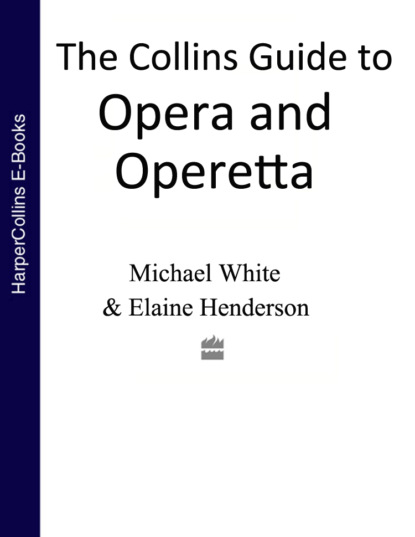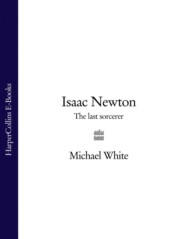По всем вопросам обращайтесь на: info@litportal.ru
(©) 2003-2024.
✖
The Collins Guide To Opera And Operetta
Автор
Год написания книги
2018
Настройки чтения
Размер шрифта
Высота строк
Поля
The Act I tenor-baritone duet, ‘Au fond du temple saint’, ranks high among the all-time favourite opera pops items. Nothing else in the score quite compares with it, but Nadir’s Act I romance, ‘Je crois entendre encore’, is a hypnotic melody, magically orchestrated.
Did You Know?
Les Pêcheurs de Perles was the last thing Hector Berlioz reviewed before resigning his job as a Parisian music critic. He wrote that it did Bizet ‘the greatest honour’.
On the other hand, George Bernard Shaw thought little of the opera, dismissing it as a ‘pretty poem’.
Recommended Recording
Barbara Hendricks, John Aler, Gino Quilico, Toulouse Capitole Choir and Orchestra/Michel Plasson. EMI CDS7 49837-2. Not the most exciting performances imaginable, but nothing better has emerged on disc in recent years.
ArrigoBoito (#ulink_e1c2d83f-d016-52f7-aca7-34a221b91a4f)
(1842–1918)
Mefistofele (1867)
Nerone (1918)
Boito was the very model of a literate, late 19th-century Italian polymath, and his lasting significance to opera is as much a matter of his words as of his music. As a young man he provided Verdi with the text for a ‘Hymn of the Nations’, and some twenty years later (after a falling-out and reconciliation between them) wrote the libretti for three of Verdi’s greatest operas: the revised Simon Boccanegra, Otello and Falstąff. It proved a collaboration almost without equal in opera history; and you could argue that Boito’s treatment of the Othello story is dramatically more effective than the original Shakespeare. As a composer he was never on such sure ground. Mefistofele occupied him for years, from when he was a student, and its premiere was a fiasco, undermined by its own ambitions. Nerone was similarly a work-in-progress for years, and left incomplete at his death.
Mefistofele (#ulink_d22d639f-810e-5754-828f-2bd5345c6733)
FORM: Opera in a Prologue, four acts and an Epilogue; in Italian
COMPOSER: Arrigo Boito (1842–1918)
LIBRETTO: Arrigo Boito, after Goethe’s play
FIRST PERFORMANCE: Milan, 5 March 1868
Principal Characters
Mefistofele
Bass
Faust, a scholar
Tenor
Margherita, a young girl
Soprano
Marta, her neighbour
Mezzo-soprano
Elena (Helen of Troy)
Soprano
Synopsis of the Plot
Setting: Heaven, 16th-century Frankfurt, Classical Greece
PROLOGUE In heaven Mefistofele wagers with God that he can gain possession of Faust’s soul.
ACT I It is Easter Sunday and Faust is observing the celebrations. Among the crowds he notices a strange, grey monk, who, unseen by Faust, follows him to his home. As Faust begins to study his Bible, the monk makes himself known and, as Mefistofele, quickly persuades Faust to promise him his soul in exchange for renewed youth and Mefistofele’s services.
ACT II Faust meets Margherita and successfully seduces her, giving her a sleeping potion to give to her mother so that they will not be disturbed. Then Faust accompanies Mefistofele to the frenzied Walpurgisnacht (Witches’ Sabbath) celebrations in the Harz mountains. But as the dancing becomes wilder and wilder Faust suddenly sees a vision of Margherita with a red ring round her neck.
ACT III Margherita is in a condemned cell, convicted of drowning the baby she has borne Faust and poisoning her mother. Mefistofele brings Faust to see her and they talk of escaping, but when she recognises Mefistofele as the Devil, Margherita rejects Faust and dies, praying for forgiveness, and Mefistofele drags Faust away.
ACT IV Mefistofele transports Faust back to classical Greece where he spends a rapturous time with the beautiful Helen of Troy.
EPILOGUE Now aged and alone, Faust reflects on the pointlessness of his experiences; he turns to the Gospels to give him strength and courage to resist Mefistofele, who offers him ever more attractive adventures. As Faust dies, praying for salvation, heaven claims its victory over the Devil, who shouts his continuing defiance.
Music and Background
As originally planned, Mefistofele was a very long and very radical score, intended to fix Italian opera on what Boito thought should be its true path. But the devastating failure of the premiere caused him to subject the piece to massive revisions, scaling it down in every way and leaving something more conventional. A general response is that the music is uneven and doesn’t convincingly knit the piece into a whole, but it makes a strong vehicle for a good bass, and has been associated with some of the greatest bass voices of modern times – notably Chaliapin in the first years of this century.
Highlights
Faust’s ‘Dai campi, dai prati’ and Mefistofele’s ‘Son lo spirito’ dominate Act I. Margherita’s lament ‘L’altra notte’ makes a poignant opening to Act III, whose Prison Scene is arguably the best-written section of the whole score.
Did You Know?
At the disastrous opening night the opera continued until well after midnight.
Mefistofele treats the same subject as Gounod’s Faust but includes more of the philosophical context which Goethe originally gave to the central love-interest.
Recommended Recording
Nicolai Ghiaurov, Luciano Pavarotti, Mirella Freni, Montserrat Caballé, National Philharmonic Orchestra/Oliviero de Fabritiis. Decca 410 175-2. A hard-to-beat cast on good form, and the last recording Fabritiis made before he died in 1982.
Alexander Borodin (#ulink_06cd7220-560b-5df9-abeb-983f08375c92)
(1833–87)
Prince Igor (1869–87)
The illegitimate son of a Russian prince, Alexander Borodin was one of the group of composers known as ‘The Mighty Handful’ or ‘The Five’ who were largely self-taught and combined their creative work with other careers. Borodin, who described music as ‘a pastime, a relaxation from more serious pursuits’, was an academic chemist; which explains why his one surviving opera, Prince Igor, remained incomplete at his death, despite seventeen years of intermittent work on the score. It was subsequently completed by Rimsky-Korsakov and Glazunov. Apart from Prince Igor, Borodin’s best-known compositions are his symphonies (two complete, one unfinished) and string quartets, whose tunes were ambushed and recycled into the 1950s musical Kismet.
Prince Igor (#ulink_5564f625-4d04-5d80-b168-86f2c1bb9e63)
FORM: Opera in a Prologue and four acts; in Russian









